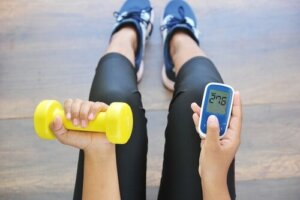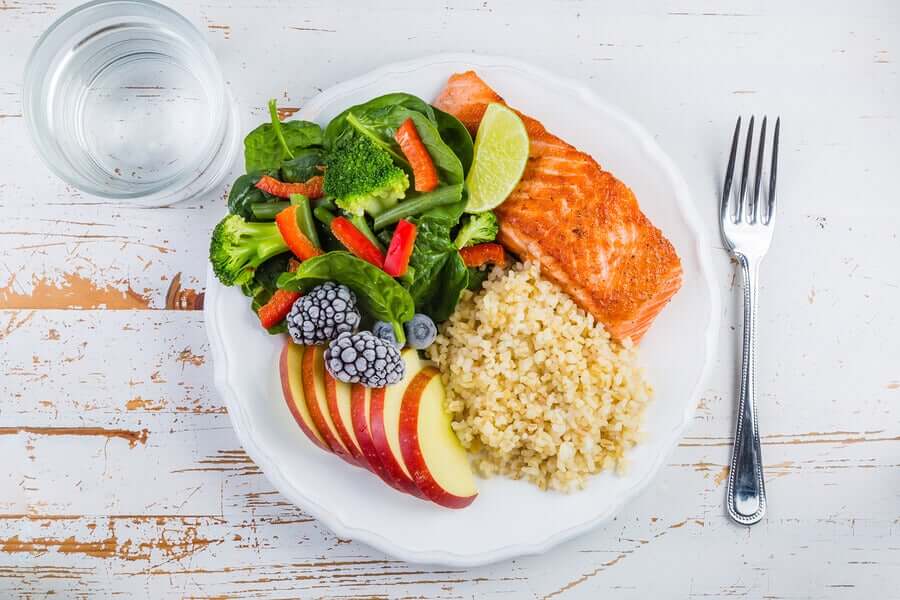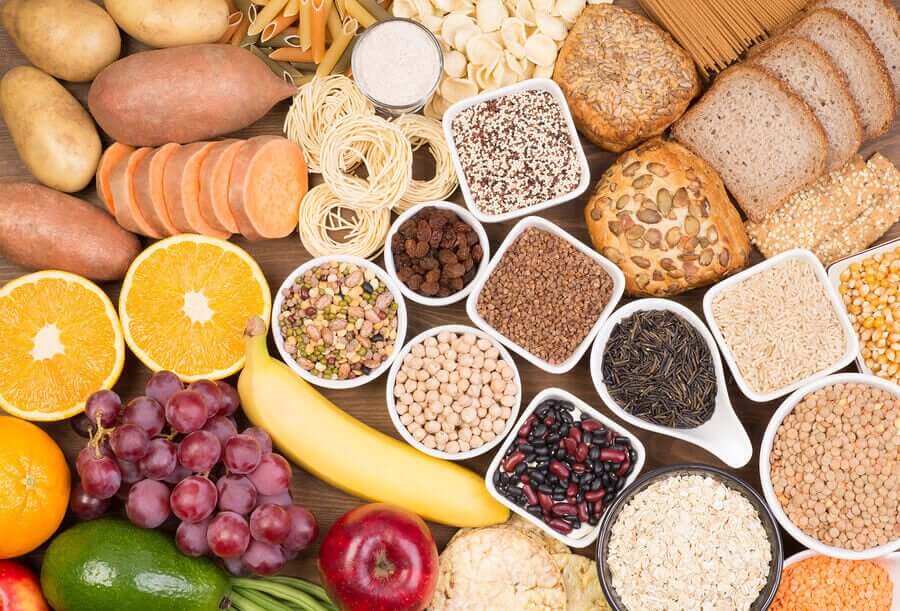Athletes With Diabetes: What You Should Be Eating

It’s really important to take part in physical exercise if you suffer from diabetes. This is because it’s been proved that regular physical activity is linked to improved glycaemic control, as well as greater control of weight management. However, what should athletes with diabetes eat?
Read this article to find out!
What should athletes with diabetes eat?
If you suffer from diabetes, your recommended diet’s similar to that of a healthy person. That’s because there’s no ideal required percentage of carbohydrates, proteins, and fats. In fact, the key to a healthy diabetic diet is eating a variety of healthy foods from all groups.
To do this, we can base the diet on Harvard’s healthy eating plate:
- Half of the plate should be vegetables, both raw and cooked.
- A quarter of the plate should be animal or vegetable proteins such as meat, white and oily fish, eggs, dairy, and legumes.
- The other quarter of the plate should be whole grains like rice and pasta.

General dietary recommendations for athletes with diabetes
When performing any type of sport, you need to consider certain guidelines that you can then adapt to your own situation. Also, you need to consider the intensity and duration of the sport you’re going to perform:
You need to monitor and track your blood glucose before, during, and at the end of physical exercise to avoid any severe glycemic alterations. An article published in Medicine and Sport Science confirms this fact. Furthermore, you should carry out these controls more frequently if you’ve only just started exercising.
With regards to blood glucose:
- Less than 70mg/dL: Exercise isn’t recommended.
- Between 70 – 99mg/dL: It’s recommended that you eat before exercising.
- Between 100-250 mg/dL: You can exercise without eating beforehand.
- Greater than 250mg/dL: Don’t exercise. Also, measure your ketone levels.
If you’re taking insulin, physical exercise could cause hypoglycemia if you don’t modify your dosage of medication or consumption of carbohydrates.
So, always take your “diabetic kit” with you consisting of high glycemic index carbohydrates (glucose gels, isotonic drinks, etc), a glucose meter, and an insulin pen.
Furthermore, keep properly hydrated. Water should be your main drink.
Also, read The Glycemic Index of Honey and Diabetes
Recommended amounts of carbohydrates for athletes with diabetes
If you’re an athlete with diabetes, you need to monitor the amounts of carbohydrates you eat. This is because when you’re doing sport, you use up your glucose reserves.
The type of exercise you do also influences your glucose levels. For example, in very short or low-intensity exercises, you probably won’t use up your glucose reserves. However, in activities of more than 45 – 60 minutes or of medium to high-intensity activity, you’ll use up your reserves more quickly.
In fact, if you’re exercising for 45 – 60 minutes, or if the exercise is of medium to high intensity, your carbohydrate intake should be as follows:
- Three-five sessions per week of one hour: 4-5g CHO/kg body weight.
- More than five sessions per week of one hour: 5-6g CHO/kg body weight.
- More than five sessions per week of two hours: 7-8g CHO/kg body weight.
- Above five weekly sessions of more than two hours: 8-10g/CHO body weight.

Eating before exercising
Your meal before a workout should include foods high in carbohydrates along with some protein. For example, cereal and semi-skimmed milk or a turkey and cheese sandwich. Choose foods that are easily digested and avoid fatty or very high-fiber foods.
You should have this meal about two-three hours before you start exercising, or one-two hours if the exercise is in the morning or you’re taking insulin.
You might want to include a nutrition supplement that’s been proven to increase the oxidation rate of fats. Caffeine is one such substance.
Also, read: What kind of nutrients can you get from legumes
Eating during exercise
You can eat during exercise, dependent upon the type and duration of the activity.
- If it lasts less than 30 minutes you probably won’t need any food.
- The higher the intensity of the exercise the more glucose and fat you use up. Therefore you should consume carbohydrates in the form of juices, dried fruit, bars, or gels.
After exercise
After exercising you must make sure you replenish your carbohydrates. This is especially important if you have a low glycemic index. In this case, you should eat fruit or nuts.
If you should suffer from hypoglycemia, follow the 15 x 15 rule. Eat food that provides 15g of fast-absorbing carbohydrates, for example, a sachet and a half of sugar, a glass of juice, or an isotonic drink.
Then, wait 15 minutes for your blood glucose levels to be restored. It’s also important to include protein in your post-exercise food. This is because it’s been proved that protein maximizes glycogen restoration in conjunction with carbohydrates.
You must remember that these are just general recommendations. Indeed, if you’re a diabetic athlete, don’t hesitate to consult a professional to customize your diet and training.
Furthermore, if you have any questions, consult a doctor.
All cited sources were thoroughly reviewed by our team to ensure their quality, reliability, currency, and validity. The bibliography of this article was considered reliable and of academic or scientific accuracy.
- Stephenson, E. J., Smiles, W., & Hawley, J. A. (2014). The relationship between exercise, nutrition and type 2 diabetes. In Diabetes and Physical Activity (Vol. 60, pp. 1-10). Karger Publishers.
- Gutierrez Hellin J., Del Coso J., Effects of p synephrine and caffeine ingestion on substrate oxidation during exercise. Med Sci Sports Exerc, 2018. 50 (9): 1899-1906.
- Alghannam AF., Gonzalez JT., Betts JA., Restoration of muscle glycogen and functional capacity: role of post exercise carbohydrate and protein co ingestion. Nutrients, 2018.
This text is provided for informational purposes only and does not replace consultation with a professional. If in doubt, consult your specialist.









